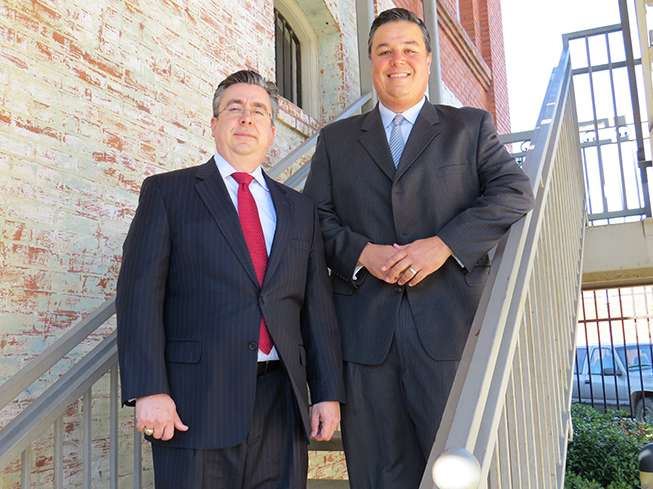What are the Penalties for DWI?
Texas law defines DWI as operating a motor vehicle with a blood alcohol content (BAC) of .08% or higher or while intoxicated by drugs or alcohol. The penalties for conviction depend on the situation, blood alcohol content (BAC), and whether there are any prior convictions.
For example, if an accident or injury was caused or the defendant has several prior convictions, the charges and penalties will be more severe.
The criminal penalties for first-time DWI may include:
- 72 hours - 6 months in jail, 1 year for BAC of .15% or higher
- Fines of $2,000 - $4,000
- Loss of driver license up to a year
- Probation
- Community service
- Mandatory participation in a DWI education program
The criminal penalties for a second DWI may include:
- 30 days - 1 year in jail
- Fines up to $4,000
- Loss of driver license up to two years.
- Probation
- Community service
- Mandatory participation in a DWI education program
The criminal penalties for a third DWI may include:
- 2 years - 10 year in jail
- Fines up to $10,000
- Loss of driver license up to two years.
- Probation
- Community service
- Mandatory participation in a DWI education program
Administrative Penalties for DWI
In addition to criminal penalties, there are administrative penalties that affect your driver’s license. If you fail or refuse a chemical test, the arresting officer will confiscate your driver’s license and issue a Notice of Suspension. You have 15 days to request a hearing or your license will remain suspended for 90 days.
When you request the hearing, you may continue to drive until a decision is made in the hearing. Our Bryan and College Station DWI lawyers can explain your options, including your eligibility for an occupational license.
Field Sobriety Tests
If you are pulled over for a DUI, the officer is going to perform one of the 3 Standardized Field Sobriety Tests (SFST):
- Horizontal Gaze Nystagmus (HGN) test - In this test the officer will observe the eyes of the person in question as they slowly move a pen back and forth to look for signs in their eyes that the person is impaired.
- Walk-and-turn test - In this test, the officer instructs the person to walk nine steps in a straight line and the return back. The officer is looking for signs that the person is impaired such as not being able to keep their balance or not following the instructions properly.
- One-leg stand test - In this test, the officer instructs the person to stand with one foot in and hold it for about 30 seconds or until told to put it down. The officer looks for signs of impairment such as swaying, hoping or using their arms to balance.
What is Texas’s Implied Consent Law?
The implied consent law in Texas states that, if you are arrested by an officer for suspected driving while intoxicated, you automatically consent to chemical tests to determine your blood alcohol content (BAC). You have the right to refuse these tests but that will lead to following penlaties:
- First Refusal: 180 days license suspension
- Second Refusal: 2 year license suspension
- Third Refusal: 2 year license suspension
Can I Get a DWI Charge Expunged?
If you are a first-time DWI offender whose breath &/or blood test came in below 0.15% and your DWI did not involve another person or result in a car accident, you may be eligible for DWI expungement in Texas. If you are looking to eliminate a DWI charge, contact our firm for your free consultation.
Call Rodriguez & Gimbert, P.L.L.C. for Knowledgeable, Aggressive Legal Representation
If you or a loved one has received a DWI, proper representation requires an attorney experienced with the state laws and local courts. Our law firm was established in 2001, and our DWI attorneys in Bryan and College Station have strong relationships with judges and prosecutors in local courts. We have represented numerous clients charged with DWI and other alcohol-related offenses.
Contact Rodriguez & Gimbert, P.L.L.C. online today or call (979) 559-3599 to discuss your case with our Bryan & College Station DWI lawyers.
Commonly Asked Questions
What steps should I take immediately after being charged with a DWI in Bryan & College Station?
If you're charged with a DWI in Bryan & College Station, it's crucial to act promptly to protect your rights. Contacting a DWI attorney as soon as possible is advisable to navigate the legal process effectively. An attorney can help you understand the charges, the potential consequences, and the defense strategies that may be available to you. They can also represent you in court and at administrative hearings regarding your driver's license suspension.
How can Rodriguez & Gimbert assist me with my DWI case in Brazos County?
Rodriguez & Gimbert provides legal representation for DWI cases in Brazos County with a combined experience of over 45 years in criminal defense. Their familiarity with local courts, judges, and prosecutors can be beneficial in your case. They can guide you through the complexities of DWI laws, represent you in hearings, and work towards achieving a favorable outcome, whether that's reducing penalties, seeking case dismissal, or fighting for an acquittal.
What are the benefits of hiring a local DWI attorney in Bryan & College Station?
Hiring a local DWI attorney in Bryan & College Station offers several benefits. Local attorneys are familiar with the specific laws and legal procedures of Brazos County. They often have established relationships with the courts, judges, and prosecutors, which can be advantageous in negotiating plea deals or navigating the trial process. Moreover, they can provide personalized attention and be readily available to address your concerns throughout your case.



